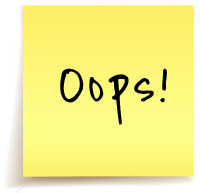As parents you want to know what your child is learning at school, however when we ask our kids what they’ve learnt at school they often don’t tell us much or they say things like; “ I played”, “We drew and coloured in”. This is especially true for children in early grades. Unfortunately this doesn’t make it easy for you to know what to help your child with and when.
How can Smart-Kids Workbooks help?
Smart-Kids Workbooks were developed to help you help your child throughout the school year. The workbooks are linked to the South African curriculum and provide activities that will reinforce what they’re learning
All learners thrive on positive reinforcement and recognition for their efforts. In doing this you are building the learners’ self esteem and confidence. A positive reward system is far more effective than using negative punishment to discourage unwanted behaviour. You can reward learners for:
Why are the Smart-Kids characters important?
How can Smart-Kids Workbooks help?
Smart-Kids Workbooks were developed to help you help your child throughout the school year. The workbooks are linked to the South African curriculum and provide activities that will reinforce what they’re learning
- one type of activity per page with clear instructions so the learner will know exactly what to do on each page
- appeal to learners, for example sport, space, toys, baking, beads, animals and playtime
- workbook is designed so that learners get many opportunities to practise and develop their skills
- have a record of learner progress in one book
- star chart and certificates to reward
All learners thrive on positive reinforcement and recognition for their efforts. In doing this you are building the learners’ self esteem and confidence. A positive reward system is far more effective than using negative punishment to discourage unwanted behaviour. You can reward learners for:
- Neat work
- Achieving a high standard of work
- Effort and determination
- Time management
- Successfully completing set pages in the Smart-Kids workbooks (Let the learners circle a face on the Smart-Kids workbook page when they have completed the activity. This enables them to reflect on how they feel about their work.)
- Before showing the workbook to your child take the time to read through the book yourself.
- Become familiar with the types of activities and think about how you will explain the activity to your child.
- If your child is in Grade R and 1 we recommend that you work through the book with them. At this stage of their learning journey, they are still acquiring the skill to work and read independently.
Why are the Smart-Kids characters important?
- The scenarios and characters in the Smart-Kids series have been carefully selected to be representative of all South African learners.
- Children should easily be able to identify with the characters and situations presented.
- Many children have expressed that they like a specific character, this bond with the character can encourage them to read a story that includes the character or provide that extra motivator to complete an activity which features artwork of their favourite Smart-Kid.
- Activities are aligned to the current South African curriculum, CAPS, and leveled so that your child is able to practice the skills required at the correct time of the school year.
- We have broken up the workbook into school terms, so as a parent you can easily identify what is required from your child throughout the year.
- Each activity is linked to a specific skill, this helps you to target skills that your child may be struggling with.


 Oops! We can’t find the article you are looking for. Please try a different Subject, Grade or Title.
Oops! We can’t find the article you are looking for. Please try a different Subject, Grade or Title.